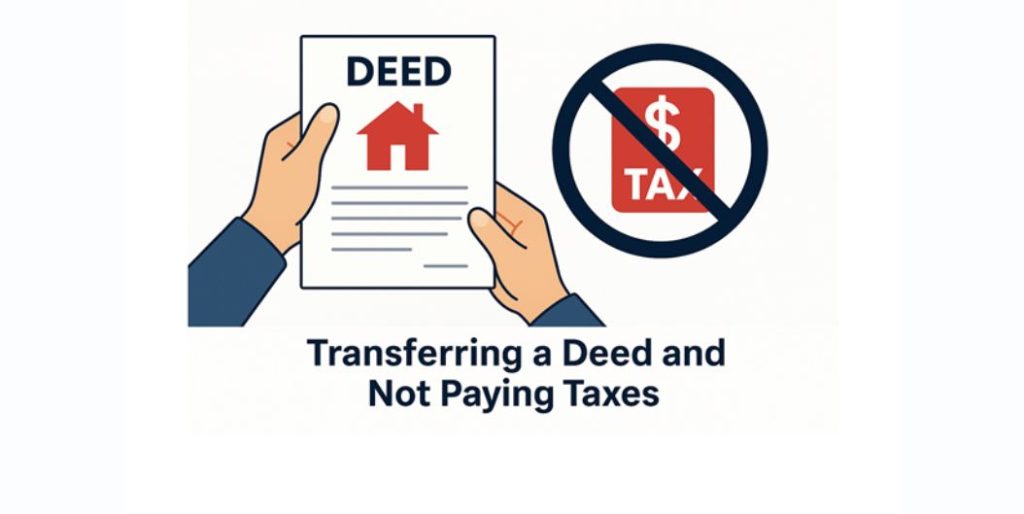Recording a trust transfer deed in California may be exempt from transfer tax if no payment is made and ownership doesn’t change. Here’s what counties require before you record.
If you’re getting ready to record a Trust Transfer Deed in California, you may be asking: Is transfer tax required? In many cases—especially when transferring property into your own revocable living trust—the answer is no. But to qualify for this exemption, your deed and supporting documents must be accurate and compliant with county requirements.
Here’s what you need to know to properly claim an exemption and ensure your trust transfer deed is accepted for recording.
Under California Revenue & Taxation Code §11930, a transfer of real property is exempt from transfer tax when:
This commonly applies when an individual deeds property to their own revocable living trust, and they remain the trustee and beneficiary during their lifetime.
Example: Jane Smith transfers her home to “The Jane Smith Revocable Living Trust.” No money changes hands, and she retains full control. No transfer tax is due.
When submitting a trust transfer deed for recording, most California counties require a Transfer Tax Affidavit or a Preliminary Change of Ownership Report (PCOR).
If prompted to explain why no transfer tax is due, you can include this commonly accepted statement:
“Transfer of real property from an individual to their own revocable living trust. No consideration exchanged. No change in beneficial ownership. Exempt under California Revenue and Taxation Code §11930.”
This language is widely accepted by county recorders across the state.
You are not required to record the full trust, but most counties require a summary document as supporting evidence for the exemption. This is typically a:
These documents generally include:
This ensures your transfer qualifies for exemption without revealing private trust details.
We assist with the electronic recording (eRecording) of Trust Transfer Deeds across all California counties. As part of our service, we ensure your submitted documents meet county standards for legibility, format, and required supporting documentation.
Our process includes checking for:
This helps avoid unnecessary delays or rejections from the county recorder.
Even if no transfer tax is due, your recording could be delayed or denied for reasons such as:
Identifying and correcting these issues before submission helps ensure your deed records without issue.
When transferring real estate into your own revocable trust in California, you likely qualify for a transfer tax exemption, provided there’s no payment and no change in ownership. Still, your deed package must be complete, clear, and compliant with county-specific requirements.
We help ensure your deed and supporting documents are ready for recording and assist with seamless eRecording across the state.
Need to Record a Trust Transfer Deed or Quitclaim Deed – Trust Transfer in California?
We work with individuals, attorneys, estate planners and escrow officers to ensure your documents meet County Recorder’s standards and are eRecorded efficiently.
Ready to Start the Process?
Create your account and use our platform to Submit Your Document Package for eRecording or call us at (888) 962-9696 to get started today.

Countrywide Process
June 03, 2025